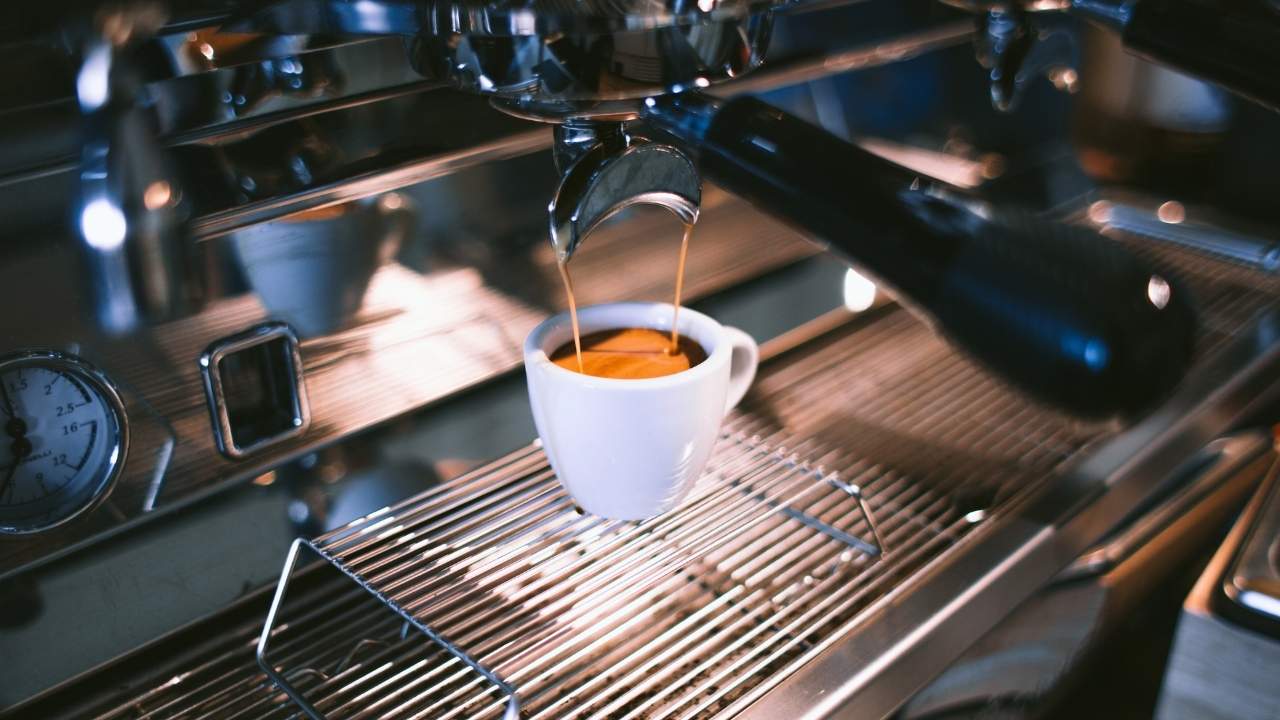Espresso Nutrition Facts
Espresso is a concentrated coffee beverage that’s beloved for its bold flavor and energizing effects. Whether you enjoy it as a standalone shot or as the base for popular drinks like lattes and cappuccinos, understanding its nutritional content can help you incorporate it into your diet wisely.
sponsored links
What Is Espresso?
Espresso is a concentrated coffee brewed by forcing hot water through finely-ground coffee beans. Known for its strong flavor and velvety texture, espresso serves as the base for popular coffee drinks like lattes, cappuccinos, and macchiatos.
Nutritional Overview of Espresso
A standard 1-ounce (30 ml) shot of espresso contains approximately:
- Calories: 2
- Total Fat: 0.1g
Saturated Fat: 0g
- Cholesterol: 0mg
- Sodium: 4mg
- Total Carbohydrates: 0.5g
Sugars: 0g
- Protein: 0.1g
- Caffeine: 63mg
Note: Nutritional values may vary slightly based on preparation methods and bean types.
Caffeine Content
A 1-ounce shot of espresso delivers approximately 63 milligrams of caffeine, providing a quick and effective energy boost. This is higher per ounce compared to regular brewed coffee, which contains about 12-16 milligrams of caffeine per ounce.
Health Benefits of Espresso
1. Boosts Energy:
With 64mg of
caffeine per ounce, espresso provides a quick and efficient
energy boost, improving focus and alertness.
2. Rich in Antioxidants:
Coffee,
including espresso, is one of the richest sources of
antioxidants in the modern diet. These compounds help fight
inflammation and oxidative stress.
3. Enhances Metabolism:
Espresso may
temporarily boost your metabolism, helping with calorie
burn.
4. Supports Heart Health:
Studies
suggest that moderate coffee consumption can reduce the risk
of heart disease.
sponsored links
Health Considerations
While espresso offers a concentrated source of caffeine and is low in calories, it's important to consider the following:
1. Caffeine Sensitivity: Individuals sensitive to caffeine should monitor their espresso intake to avoid potential side effects such as insomnia, jitteriness, or increased heart rate. Excessive caffeine intake can also lead to restlessness, insomnia, or increased heart rate. It's recommended to limit daily caffeine consumption to 400mg for most adults.
2. Acidity: Espresso is more acidic than regular coffee, which may cause discomfort for those with sensitive stomachs.
3. Additives: Adding sugar, flavored syrups, or cream can significantly increase the calorie and sugar content of your espresso drink. Opting for plain espresso or using minimal additives can help maintain its low-calorie benefit.
Espresso-Based Beverages: Nutrition Facts Comparison
- Espresso Shot (1 oz): 2 calories, 0g sugar
- Americano (8 oz): 5 calories, 0g sugar
- Latte (16 oz with whole milk): 190 calories, 17g sugar
- Cappuccino (16 oz with whole milk): 140 calories, 12g sugar
Note: Customization, like using non-dairy milk, may alter nutritional values.
Frequently Asked Questions
1. Is Espresso Healthier than Regular Coffee?
Espresso and regular coffee share similar health benefits. The difference lies in serving size and concentration, with espresso offering a bolder flavor and more caffeine per ounce.
2. Can I Drink Espresso on a Diet?
Yes! Espresso is an excellent low-calorie beverage choice for most diets. Avoid adding excessive sugar or cream if you're monitoring your calorie intake.
3. Is Espresso Good for You?
Yes, when consumed in moderation, espresso can be a healthy addition to your diet. However, excessive caffeine intake can lead to issues like insomnia, jitteriness, and increased heart rate. The FDA recommends limiting daily caffeine intake to 400mg, roughly equivalent to six espresso shots.
Conclusion
Espresso is a low-calorie, low-fat beverage that offers a concentrated source of caffeine and antioxidants. Its minimal macronutrient content makes it compatible with various dietary preferences. However, individuals should consider their caffeine tolerance and any digestive sensitivities when incorporating espresso into their diet.
Disclaimer: Nutritional values may vary depending on preparation and additional ingredients. Consult with a healthcare professional if you have dietary restrictions or caffeine sensitivity.
sponsored links
References
1. Starbucks®. (n.d.). Starbucks. https://www.starbucks.com/menu/product/410/hot/nutrition
2. Gerald. (2024, October 10). 11 Espresso nutrition Facts you need to know - Facts.net. Facts.net. https://facts.net/espresso-nutrition-facts
3. Caffeine chart. (2024, June 20). Center for Science in the Public Interest. https://www.cspinet.org/caffeine-chart
People are also reading...
Starbucks Toasted Vanilla Shaken Espresso
See the answer to: "Starbucks Toasted Vanilla Shaken Espresso"
How Long is Greek Yogurt Good for After Opening?
See the answer to: "How Long is Greek Yogurt Good for After Opening?"
How Many Carbs in a Hamburger Bun?
Calories in KFC Coleslaw
How Much Sugar In Beer?
Carbs Bud Light?
Dr Pepper Zero Caffeine
Why do Bananas Give Me Heartburn?
Dave's Hot Chicken Calories
Ready to level-up?
Create meal plans 10x faster, follow up with your clients through our mobile app, and never struggle with meal planning or recipe management again.
